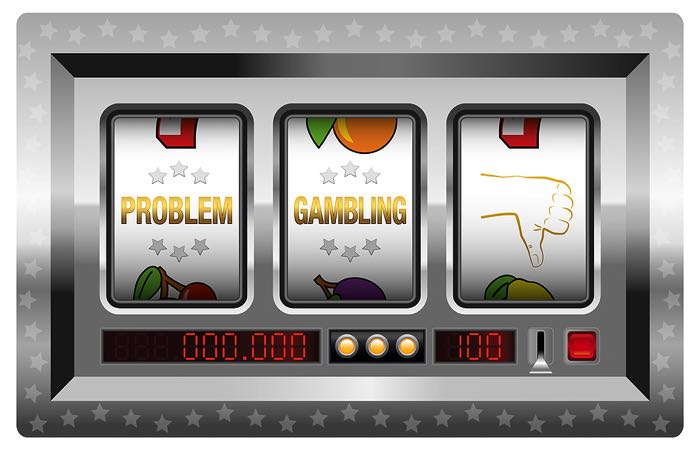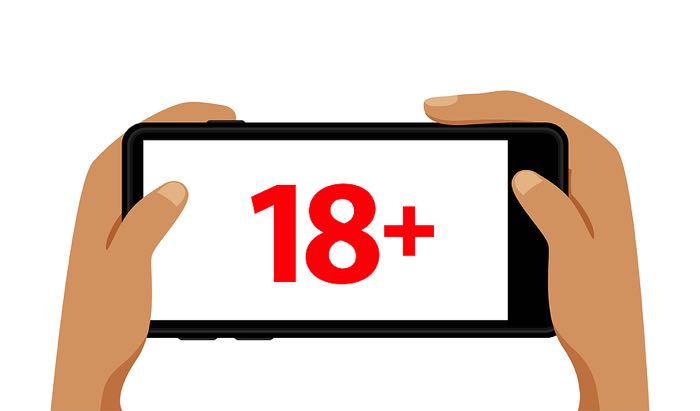 Since April 2020 credit cards have not been an accepted payment method for UK customers at properly licensed and regulated betting sites. That was a welcome move and long overdue but some punters have expressed concern about how betting might affect their credit in a rather different way.
Since April 2020 credit cards have not been an accepted payment method for UK customers at properly licensed and regulated betting sites. That was a welcome move and long overdue but some punters have expressed concern about how betting might affect their credit in a rather different way.
There are many different types of punters who could be worried about this. That might range from a very small number of problem gamblers, to recreational punters who just bet very regularly. In addition, anyone who is a professional gambler, semi-professional bettor, or an advantage gambler that takes advantage of welcome bonuses and offers, as well as those who employ arbitrage betting techniques, may be worried that even though they are making money from gambling, such activity could negatively affect their ability to get a mortgage or a loan.
One might assume that taking money from the bookies, for those skilful or lucky enough to do it regularly, would help your financial reputation. However, win or lose, punters are right to think about the bigger picture when it comes to betting. In this article, we look at whether or not gambling impacts your credit rating, whether or not bookies carry out credit checks on customers, and whether regular gambling might affect your ability to obtain a mortgage, a business loan or other lines of credit.
Do Bookies Run Credit Checks?

A key concern that some people have is that when they join a new bookmaker some form of credit check will be done and that this will stay on their credit record and potentially negatively impact their overall score. Unsurprisingly, given that betting on credit is illegal, bookies do not carry out any sort of credit check on customers and so there is nothing to blot your credit record.
Experian, a huge credit reporting and checking company founded in 1996, wrote in a blog post that “Gambling activity does not show up on your credit report, nor does it directly impact your credit history.” That is just the sort of clear, simple and unambiguous answer we love to get when we ask a question.
They go on to list the following factors as influences on one’s credit score and report:
- Payment history (on things like loans and credit cards)
- What proportion of available credit you are using and how much you owe
- Length of credit record/history
- Mix of credit
- Hard credit checks and new lines of credit taken up
Gambling activity does not fall under any of these and any gambling net win, loss or activity is not reported to Experian and the other main consumer credit bureaus. Moreover, bank balances, as well as account credits and debits are not shown on credit reports so as far as your credit-worthiness and credit record is concerned, gambling has no direct impact on your credit rating or chances of getting future credit, be it a mortgage, car finance or anything else.
Indirect Influence of Gambling on Credit

If your gambling leads to a few net wins or comfortably manageable within your means then it will in no way affect your credit rating. That is not to say it will not affect your ability to get a mortgage though, as these are separate issues and we will look at that shortly. However, a more pressing issue might be gambling indirectly affecting your credit rating by creating financial problems.
Problem Gambling May Indirectly Affect Credit
If you are (or think you might be) struggling to control your gambling, we urge you to check out the NHS info on problem gambling. Such behaviour can cause a whole host of problems and certainly losing more than you can afford to lose can indirectly affect your credit rating.
If, for example, you use a cash advance on a credit card to fund gambling (this circumvents the ban on credit card gambling because the credit card company cannot control where the money goes after they advance it and, of course, the betting company does not know it originated with a credit company) this can be at best a minor red flag. If you service the debt well then it may not be too much of an issue (despite not being recommended!), although due to the high fees advances entail, there is at least a suggestion they may automatically be a negative on a credit report.
Unable to Pay Other Debts Due to Gambling
Another indirect impact gambling can have on your credit score is if the money you lose to bookies and casinos means you are unable to pay off other debts. For example, if you go into arrears on your mortgage, car repayment deal, rent, mobile phone or any other bill, this will be a major blot on your credit score. Gambling won’t directly be the cause – the missed payments will be – and any future prospective lender won’t know about the underlying issue with betting, but even so, it is clear to see how gambling could affect your chances of getting a mortgage or loan.
Payday Loans Problematic
Another similar impact could be if you are having to take out a standard loan, payday loan or extra credit card in order to pay day-to-day living expenses due to gambling losses. Taking on extra credit is, beyond a certain point, bad for your credit rating and could certainly make obtaining yet more credit somewhat tricky.
Credit Utilisation
In a similar vein, credit utilisation, to use the technical term, is a factor that affects your credit score. What this means is that if you are using a high proportion of your available credit, banks and other lenders are likely to view this in a negative light. So if you have an existing credit card with a £10,000 credit limit, using a few thousand pounds of this and paying it off each month is possibly positive.
In contrast, gambling losses might mean you have to pay for food and other regular outgoings on your card, and perhaps get a cash advance to pay into your bank to pay your rent. If this sees you go right up to, or even beyond, your £10,000 limit, this full credit utilisation is a red flag to potential future lenders. The red flag gets even bigger and brighter if you then only make the minimum payments against the debt.
Gambling Can Impact Your Credit Score
Whilst it is absolutely accurate to say that gambling does not affect your credit score directly, it is clear that gambling can impact it indirectly. This can happen in a range of ways and so once again, we must stress, if you are concerned about your gambling, or any of the aforementioned issues sound familiar, please get help.
Might Gambling Transactions Stop Me Getting a Mortgage?

Responsible creditors have always made checks to try and make their lending as safe as possible and to avoid bad debts (ones that will not be repaid). Following the global financial crisis in 2008, these checks became far more stringent and a key criterion has been affordability.
Lenders Look at Outgoings + Earnings
Lenders now take a far closer look into a borrower’s finances and in particular take far more interest in their outgoings, not just their earnings. They typically want to know what you spend your money on and may well ask if you gamble. In addition, they will need to look at bank statements and this may be an issue if yours show pages and pages of deposits to a whole host of bookies, casinos, poker sites and bingo rooms!
Gambling as a Red Flag for Lenders
If you can clearly demonstrate that any gambling is highly affordable within your budget and any stress test that lenders might put on your finances (seeing if you could still afford the mortgage or loan if interest rates were to rise significantly) then you might not have an issue. In addition, the same is true if you are a professional or advantage gambler who can clearly illustrate that the net result of your betting is financially positive. Even if this is the case, though, you may wish to avoid taking any chances and this is something we will discuss in a moment.
Of course, if none of these things is true and your bank statements show a steady stream of deposits to gambling companies and few, if any, withdrawals, things are far more problematic. If your current account is using an overdraft, especially for extended periods, this will look even worse. The same is true if you are adding funds to your account from a savings account or other source that cannot easily be explained.
So, whilst these transactions will not even be known to any credit-checking agencies and can thus have no impact on your credit score, they can still very much affect your ability to get a mortgage. Few other loans have as many checks and affordability tests but ultimately any borrowing where the lender wants to see your bank statements could be affected should they have lots of deposits to gambling companies.
Ways to Avoid Gambling Transactions on Mortgage Application
Many people who gamble professionally or undertake advantage techniques such as matched betting, bonus bagging or arbing choose to play things safe when it comes to their banking. Whilst they may be able to explain to any potential lenders that they are actually making money from betting, they avoid the issue entirely by keeping their betting finances separate from their main bank account.
Separate Accounts
The easiest way to do this is to simply open a separate account, with a different bank if you want. This way, any and all transactions with banks can be kept entirely apart from your main salary and “normal” outgoings. Should you want to apply for a mortgage or loan, or think you might want to in the years ahead, you can then simply show the bank your main account and the gambling will remain a mystery to both the credit agencies and them.
This will work fine as long as you do not need to regularly dip into your main account to find the betting one. If you are losing a lot of money the separate gambling account would need funding from somewhere. However, even in this scenario such withdrawals from your main bank account could be more easily explained than would be the case if they were obviously going directly to betting companies.
One word of warning with this: if you are struggling with gambling and losing a lot of money, hiding this to take on more debt is not a good idea. Buying a new car or moving into a new house with a big mortgage is very probably a bad idea whilst you are still gambling and the extra debt is only likely to add more pressure to your situation. Rather than try and fool a potential creditor to obtain debt you may not be able to service, get help with your gambling first.
When Is PayPal Not PayPal?
Another avenue that those seeking to hide their gambling from a prospective lender may choose to take is to use a third party to process the payments. There are a number of e-wallets and similar deposit methods available at most bookies, with PayPal one of the most popular. If you make your deposit via these then all that will show up on your bank statement is a payment to PayPal which you can potentially explain away as a present, new clothes, furniture for the house or any other typical expenditure.
Of course, as we touched on before, if you are losing a lot of money then this will remain an issue because the lender will see that you are spending too much. Ultimately, they don’t hugely care what you are spending money on as long as you can afford to repay the mortgage or loan. Spending too much on new clothes or meals out is, to some extent, as bad as spending too much betting on football bets or playing roulette, so merely concealing transactions will not necessarily be enough.
In addition, and this is very important for anyone who was thinking of going down the e-wallet route, you should be aware of how transactions are processed. With many (and certainly including PayPal) you can either make a payment through the e-wallet using an existing balance held there or from another payment method, typically a debit card.
Appears as Paypal on Your Statement
In the case of the former, you simply deposit from your preferred method into your e-wallet in advance of wanting to add funds to a betting site. Then when you go to add funds to your online betting account you should be given the option to use the existing balance of your e-wallet. Do this and the gambling transaction will not show on your statement in any way or form as the initial transaction was simply into PayPal or whatever wallet you prefer.
However, should you make the payment to the bookie or casino through PayPal but using your debit card, as opposed to an existing balance, your bank statement will record the site as the transaction, rather than PayPal. This is not an issue for most customers but if you were using a third-party processor to avoid such a situation, it clearly is!
What Checks Do Bookies Make on New Customers?

Whilst bookmakers and other online casinos do not run a credit check on customers, they do make certain checks, most of which they are legally obliged to carry out. Increased regulation over the past decade has put the onus on operators more than ever to make sure that any customers they accept are over 18, resident in a jurisdiction where betting is legal and that they are not involved in money laundering. There have been increasing “source of wealth” and affordability checks required too, both to help with anti-money-laundering and also to make sure punters do not lose more than they can afford.
Some sources which we do not feel are especially authoritative claim that betting sites carry out soft searches. A soft search usually relates to taking out credit and so we have our doubts over this. According to reputable credit agencies, soft searches take place when you check out your own credit rating, you do a preliminary check with certain credit card companies or loan companies to see if you might be eligible for credit or when a company is trying to verify your ID.
This latter point could lead some to believe that betting sites undertake soft searches. However, Experian do not list this as one of the reasons a soft search might take place. Moreover, it is our understanding that the number one resource for automated ID checks and age verification from bookmakers is the electoral register.
In truth, the point is moot because whether or not betting sites do carry out soft searches, as the term is understood within the realm of credit and borrowing, or not, such checks do not show up on your credit report. Such searches would not be visible to anyone else and nor would they affect your ability to get credit.
Bookies, Credit Checks & Credit Score: Conclusion
Betting has no direct impact on your credit score, credit rating, credit worthiness or ability to get a mortgage. Gambling with a UK bookie or betting site cannot legally be done via a credit card and no site extends credit to “normal” customers. This may be offered for VIPs and in elite, high-class betting spheres but sadly those are not the circles we mix in and we suspect you might be the same.
So, given betting on credit is not possible, it is no real surprise that bookies do not carry out any sort of credit check. Nothing you do with a bookie directly has any impact whatsoever on your credit report. However, if gambling affects your overall financial health, this could easily have knock-on effects that definitely would hurt your ability to get finance, a mortgage or some other form of loan. Failed or missed payments, new credit requests and extending and fully using existing credit arrangements can all be black marks on your credit report.
In addition, when it comes to attempting to get a mortgage (and possibly other large loans too) increasing checks for affordability mean that financial institutions may want to see your bank statements. If these show a large number of transactions to betting sites this can be of concern, even if you are actually winning but especially if you are showing a large negative position overall.
The best way around this last point is to have a separate bank account for your day to day activities and another for betting. E-wallets are another option as long as you make sure funds are taken from an existing balance there, rather than from a debit card, which could then still appear on your bank statement as a payment to a gambling website.
Irrespective of how you make such payments, if you are spending a lot of cash on gambling this will be hard to conceal. If you are gambling more than you can afford then this will show somewhere. If this is the case, we strongly advise you to seek help, with the NHS a good place to start.
